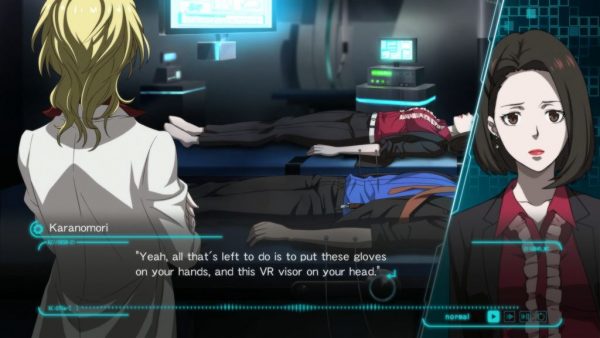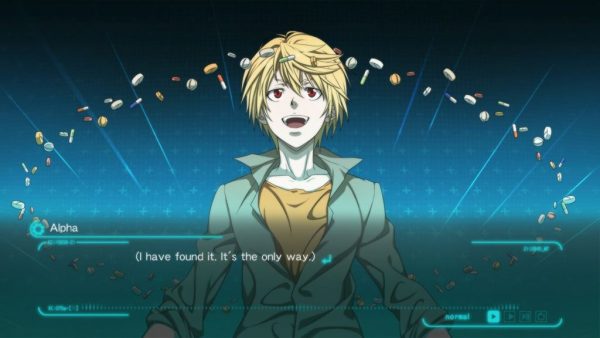Also On: PS4
Publisher: NIS America
Developer: MAGES./5pb
Medium: Digital/Vita Card/Disc
Players: 1
Online: No
ESRB: T
I like to think of Psycho-Pass: Mandatory Happiness as being kind the anti-A.W.: Phoenix Festa. Both games, after all, are based on animes that I know nothing about. However, where Phoenix Festa managed to draw me in with its story and its gameplay despite my lack of familiarity with the subject matter, I can’t say that I found anything that got me interested in Psycho-Pass.
Or maybe Root Letter is the better point of comparison. Both it and Psycho-Pass are visual novels, which you’d think would mean there’d be some similarities between the two. But nope: Root Letter is, as far as I’m concerned, one of the better games of the year, with an intriguing storyline that left me eager to learn what was coming next. By contrast, I doubt I’ll remember much, if anything, about Psycho-Pass by this time next week.
There’s an argument to be made, I suppose, that these are both unfair comparisons. Phoenix Festa is a dating sim-slash-action RPG, which means that, by its very nature, you’re going to have things to do. Meanwhile, Root Letter may be a visual novel, but its approach to the genre is very different to that of Psycho-Pass, and its proponents may say that, as such, Psycho-Pass shouldn’t be judged for not being something it’s not intended to be.
Your mileage will vary on those arguments, but as far as I’m concerned, they’re both non-starters. Psycho-Pass’ problem is that what it intends to be — a Choose Your Own Adventure-style visual novel — is just painfully boring. You click through one static-looking scene with dialogue that leads into another static-looking scene with dialogue, which in turn leads into still another static-looking scene with dialogue. Eventually, if you’re lucky you’ll reach a static-looking scene with dialogue that leads into a choice…but that, in turn, just leads to more and more static-looking scenes with dialogue. I know that the nature of visual novels is that they’re text- and dialogue-heavy, but this game seems to take it to a boring extreme. Moreover, whereas a lot of its contemporaries have found interesting ways of giving players agency, here it really feels like you’re just clicking through scene after scene.
Now, all this talking might be forgivable if the characters had anything really interesting to say…but, as we’ve established up top, that’s not the case. Psycho-Pass loves its endless expository dialogue, and it loves it in the service of world-building for a universe that isn’t particularly interesting unless, I assume, you’re already really into the anime. If you’re not, then be prepared for lots and lots of talking that won’t mean a whole lot to you.
To top it all off, Psycho-Pass isn’t very nice to look at. The characters all look like standard-issue anime tropes, only the way the game is presented, it looks like the screen has had a heavy dose of Vaseline applied. I know that’s an old Hollywood trick, but we’re talking about a game, not a classic movie, which means everything here just looks a little dull. Again, I know that visual novels have a slightly lower bar to clear when it comes to presentation, since there’s so little going on in the action department, but, remarkably, this game doesn’t even clear that standard.
In other words, what you have in Psycho-Pass: Mandatory Happiness is an ugly-looking game with forgettable characters and a dull plot. I’m sure that if you’re into the anime, you may have a slightly higher opinion of the game, but if you’re not, there’s no reason to even think about looking into it.



